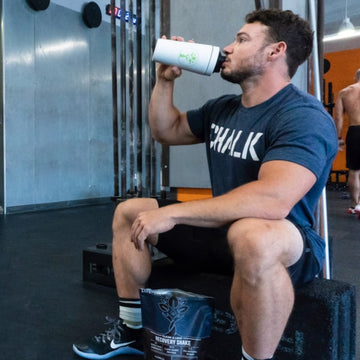In the world of fitness and muscle building, most people already know that getting enough high-quality protein is essential. Whether you use whey, plant-based proteins, or a combination, providing your muscles with the right fuel is key for recovery, strength, and growth. But new research suggests there might be a simple way to level up your results even further: adding a collagen supplement to your protein powder.
Why Add Collagen?
Collagen is the most abundant protein in the human body, crucial for healthy tendons, ligaments, skin, and bones. However, collagen by itself is not a complete protein — it’s missing key essential amino acids like leucine, which are critical for directly stimulating muscle protein synthesis (MPS).
That said, collagen is rich in glycine and proline, amino acids vital for connective tissue repair and joint health, two things that play a huge role in supporting long-term strength and muscle growth, especially during intense training.
Recent studies show that when collagen is combined with a high-quality protein like whey or plant protein, it could offer extra benefits that go beyond what either could achieve alone.
What the Research Says
🔬 In a 2025 study published in Medicine & Science in Sports & Exercise, researchers found that adding just 5 grams of collagen to a 25-gram protein shake after exercise boosted both muscle fiber and connective tissue protein synthesis.
While protein alone is excellent at building muscle, the collagen addition uniquely enhanced the repair of connective tissues — something critical for long-term performance and injury prevention.
Another 2024 study showed that when collagen was mixed with protein after exercise, it helped maintain higher glycine levels in the blood — filling a gap that protein alone tends to miss. Glycine is a key amino acid your body needs for rebuilding connective tissues like tendons, ligaments, and cartilage.
In practical terms, this suggests that while protein powders drives muscle fiber growth, collagen may enhance the recovery and strength of the "infrastructure" — the ligaments, tendons, and fascia — that support those muscles.
What About Long-Term Muscle Growth?
Long-term studies comparing collagen alone to whey or plant-based protein for building muscle clearly show that protein is superior for increasing muscle mass. However, collagen supplementation during training programs has been shown to improve lean mass and strength better than training without supplementation, particularly in older adults and active women.
Importantly, no large-scale study yet proves that adding collagen to whey or plant protein dramatically increases muscle size beyond what protein alone can do.
But — based on the recent research — it's likely that adding collagen helps optimize recovery, support joint health, and strengthen connective tissues, which indirectly helps you train harder and more consistently, leading to better gains over time.
How to Add Collagen to Your Routine
If you already take a post-workout protein shake, the easiest strategy is to simply add 5 to 10 grams of collagen peptides to your usual scoop of whey or plant protein. Look for a high-quality, hydrolyzed collagen product to ensure easy mixing and fast absorption.
Timing tip:
Take your protein + collagen shake right after training, when your body is most primed to rebuild muscle and connective tissues.
Extra bonus:
Collagen has other benefits too, like improving skin elasticity, joint comfort, and gut health — so you’re getting much more than just muscle support.
For those interested in trying collagen alongside their usual protein, look for a high-quality, hydrolyzed collagen powder that’s easy to mix and digest. Products like B Maximum’s Vital Supply Hydrolyzed Collagen offer a clean, effective way to get the key amino acids needed for connective tissue support, without adding extra fillers or sugars. Learn more here.
The Bottom Line
Adding collagen to your protein shake won’t replace the muscle-building power of whey or plant protein — but it might help you recover faster, strengthen your connective tissues, and stay injury-free, all of which can indirectly boost your long-term muscle gains.
For athletes, bodybuilders, or anyone serious about fitness, it's a small, smart upgrade that could make a real difference.







